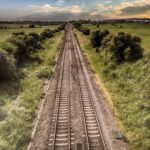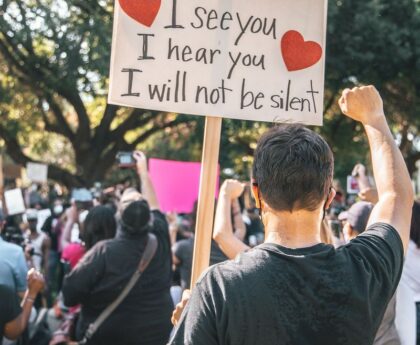Asia Pacific: Australia voting in landmark Indigenous Voice referendum
Reuters October 14, 2023 1:28 AM UTC Updated ago
A depiction of the Australian Aboriginal Flag, seen on a window sill at the home of indigenous Muruwari elder Rita Wright, a member of the “Stolen Generations”, in Sydney, Australia, January 19, 2021. REUTERS/Loren Elliott
SYDNEY, Oct 14 (Reuters) – Prime Minister Anthony Albanese made a last-ditch appeal on Saturday for his fellow Australians to back a referendum to recognise Indigenous people in the constitution, as the country went to the polls to decide on the historic measure. “I sincerely hope that Australians, when they walk into that ballot box today, vote ‘Yes’,” Albanese said in Sydney, according to a transcript.
Australians must write “Yes” or “No” on the ballot to the question whether they agree to alter the 122-year-old constitution to recognise Aboriginal and Torres Strait Island people and create an Indigenous body, called the Voice to Parliament, that can provide advice to the government on Indigenous issues.
A poll released on Saturday indicated the “No” vote is likely to succeed despite a late lift in support for “Yes”. Academics and human rights advocates fear a win for the No camp could set back reconciliation efforts by years.
Supporters of the proposal believe entrenching an Indigenous Voice into the constitution would unite Australia and usher in a new era with its Indigenous people, who account for 3.8% of the population and by most socio-economic measures are the most disadvantaged people in the country. Most Indigenous people favour the change, but some say it is a distraction from achieving practical and positive outcomes and would not fully resolve the issues affecting them. The political opposition says the measure is divisive, would be ineffective and would slow government decision-making.
Polls opened at 8 a.m. (from 2100 GMT on Friday in Sydney and Melbourne to 2400 GMT in Perth), although more than 5 million people voted early. Voting is compulsory in Australia. Vote counting starts after polls close at 6 p.m. (0700 GMT in Sydney), and the Australian Electoral Commission will release tallies as they come in.
At Sydney’s Bondi Beach, Indigenous man Michael Mahoney said he voted Yes for “equality for all people, and a voice from my people to be part of our constitution”. Nearby, Sydneysider Geoff Sumner said he voted Yes in the hope “this will make a difference and we can improve Aboriginal conditions all around”. Another voter, Greg Mason, doubted the usefulness of an Indigenous Voice to Parliament. “All it does is divide our nation,” he said.
Referendums are difficult to pass in Australia, with only eight of 44 succeeding since the country’s founding in 1901. Constitutional change requires a majority of votes both nationwide and in at least four of the six states.
Editorial: Divisive Referendum Highlights Australia’s Ongoing Challenge with Indigenous Recognition
The Indigenous Voice referendum in Australia highlights the country’s ongoing struggle to fully recognize and empower its Indigenous population. The contentious issue of Indigenous rights has been a persistent debate in Australian society, and this referendum represents a significant step forward in addressing historical injustices and promoting reconciliation.
However, the referendum has also exposed deep divisions within the Australian community. While supporters argue that recognizing and creating an Indigenous body in the constitution will unite the country and improve the lives of Indigenous people, opponents claim that it is a divisive measure that will slow down government decision-making. These divergent views reflect the complexity of the issue and the challenge of achieving consensus on Indigenous recognition.
Philosophical Discussion: The Role of Indigenous Voice in Nation-Building
The prospect of entrenching an Indigenous Voice into the Australian constitution raises fundamental questions about the nature of democracy and nation-building. Advocates argue that including an Indigenous body in the constitution would affirm the importance of Indigenous perspectives and ensure their rightful place in the decision-making processes of the nation. It is seen as a step towards correcting historical injustices and addressing the ongoing socio-economic disadvantages faced by Indigenous Australians.
However, opponents question the effectiveness of such a measure and raise concerns about its potential to divide the nation. They argue that instead of focusing on symbolic gestures, the government should prioritize practical and positive outcomes for Indigenous communities. This debate reflects larger philosophical questions about the role of representation, equality, and inclusion in the fabric of a democratic society.
Advice: Moving Forward with Indigenous Recognition
Regardless of the outcome of the referendum, Australia must continue its efforts to address the historical and ongoing injustices faced by Indigenous Australians. Recognition and empowerment of Indigenous people should not solely rely on constitutional amendments but should be reflected in meaningful policy changes and actions.
To move forward, it is crucial for the government, policymakers, and communities to engage in open and respectful dialogue to find common ground and develop comprehensive strategies for Indigenous recognition, reconciliation, and healing. This involves acknowledging the diverse perspectives and experiences within the Indigenous community and promoting collaboration between Indigenous and non-Indigenous Australians.
Australia has made significant progress in recent years towards recognizing the rights and aspirations of Indigenous people, but there is still much work to be done. It is essential for all Australians to continue to educate themselves about the history and culture of Indigenous Australians, confront biases and prejudices, and actively support initiatives that promote social justice and equality.
Reporting by Praveen Menon, Sam McKeith, and Stefica Nicol; Editing by Edmund Klamann and William Mallard
Our Standards: The Thomson Reuters Trust Principles.

<< photo by Steve Busch >>
The image is for illustrative purposes only and does not depict the actual situation.
You might want to read !
- “Icon Rivalry: The Spectacular $1bn Darling Harbour Hotel Spires Over the Opera House”
- Beauty Revolution Down Under: Glossier Launches Shipping to Australia
- Sydney IMAX rejuvenated: The long-awaited reopening breathing new life into Australia’s iconic cinema experience
- Battle Down Under: KSI vs Tommy Fury – Unlocking the Win
- Australia’s Data Breach Dilemma: PwC Emails Unveil Shocking Government Data Theft
- PwC in Hot Water: Government Data Breach Exposed in Email Scandal
- Aussie Rules Abroad: The Remarkable Journey of Dan McLellan, from Down Under to Representing England at the Highest Level
- Beyond the Multiverse: Unveiling the Enigmatic Release of Rick and Morty Season 7
- PwC accused of deceptive tactics in Senate hearing on consultancy divestment
- Indigenous Voice: An Imperative Vote on Australia’s Path to Equality
- The Remarkable 14,000km Journey of a Voice Campaigner for Marriage Equality
- True Blue Skies No More: Sunrise Star Mark Beretta Announces End of 22-Year Marriage
- Mysterious ‘Yowie’ Spotted in Australian High Country
- “Lessons in Chemistry” Review: Brie Larson Sparkles in a Heartfelt and Soulful Performance
- Bernie Ecclestone escapes jail time despite confessing to tax fraud: Analyzing the implications for the justice system and public trust
- Olympic Couple’s Preparatory Run Leading to New Obstacle
- “Ultimate Showdown Down Under: Livestreaming Euro 2024 Clash Between Netherlands and France”
- “Cracking the Code: Stream Portugal vs. Slovakia Euro 2024 Qualifier in Real Time”
- Memory under Scrutiny: Vanessa Amorosi’s Court Battle with Her Mother




